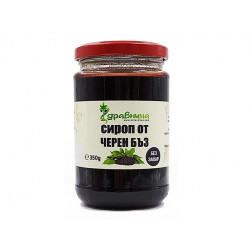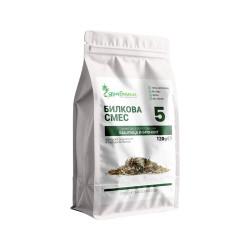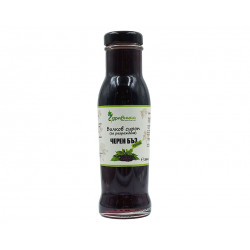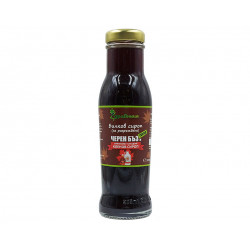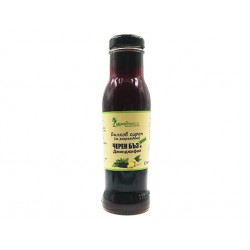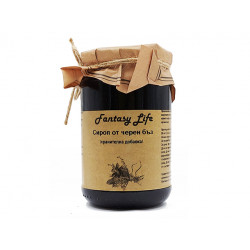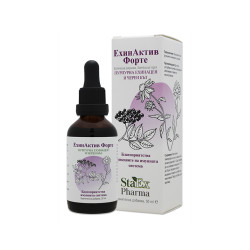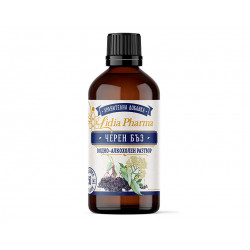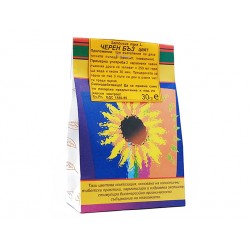Elderberry (Sambucus Nigra) is on of the tree elderberry plants, which grows in Bulgaria.
Elderberry is a small tree with sprouted branches and a white core. Elderberry has a powerful immunostimulating effect and gives energy to the body. This is why the plant is considered to be the Bulgarian ginseng.
Bulgarian popular healer Petar Dimkov believes that the elderberry is the most powerful Bulgarian herb. He told a story about his walk in the wild and how he witnessed a fight between a poisonous snake and a weasel. When the mammal was bitten by a snake, he stumbled into the bushes and eaten some of elderberry bark, returned and strangled the serpent. In his notes he claims that the swallows eat elderberry fruits to keep their energy when they fly to the warmer sides. Healing properties have all parts of the plant - the roots are used for decoction, the fruits are used for juice and infusions, the leaves are useful for compresses.
Fruits are probably the most used part of the elderberry - they are rich in anti-cyanide compounds that help neutralize free radicals. They contain a lot of pectin and cellulose, which promote better stomach and intestinal activity, act against constipation and improve intestinal flora in the colon. Fruits also act expediently, contain minerals and vitamins, and the properties of glycosidic substances help to lower the fever. If they are dried properly or stored as syrup, the vitamins in them are completely preserved.
In Bulgarian folk medicine elderberry is used against cold and kidney diseases, normalization of high blood pressure, acute cough, gout, hemorrhoids, anemia. Because of the high vitamin C content of the fruits, elderberry tea is suitable for smokers and people with weakened immunity.
* Find a product for a specific disease such as write his name (eg .: Diabetes)
No products
Elderberry - Bulgarian Ginseng!
Health products

Related products
- Elderberry syrup, Sugar Free, Zdravnitza, 350 gОтзиви към продукта: 14
Elderberry syrup of "Zdravnitza" is a natural product, produced in Bulgaria, according to a recipe from the Bulgarian folk medicine. Suitable for diabetics.
4,55 € / 8,90 лв - Herbal Blend 5, Cough and Bronchitis Support, Zdravnitza,...
Herbal Blend 5 by "Zdravnitza" is an all-natural product made from 9 herbs. It has a beneficial effect on cough and bronchitis.
7,20 € / 14,08 лв - Elderberry Herbal Syrup, concentrate, Zdravnitza, 285 mlОтзиви към продукта: 5
Elderberry - herbal syrup is a drink for health and longevity. Natural product for young and adults. Powerful immune stimulant. Produced in Bulgaria.
4,50 € / 8,80 лв - Elderberry and Maple, Herbal Syrup, concentrate,...
The combination of original Canadian maple syrup and fruit of elderberry is a powerful immune booster, improves overall health and prolongs life.
6,80 € / 13,30 лв - Black elderberry and ginger, concentrate syrup,...Отзиви към продукта: 4
Elderberry ang ginger - herbal syrup is a drink for health and longevity. Natural product for young and adults. Powerful immune stimulant. Produced in Bulgaria.
4,50 € / 8,80 лв - Elderberry syrup, dietary supplement, Fantasy Life, 300 mlОтзиви към продукта: 17
Elderberry supports the activity of the immune system, having a beneficial effect on the body's natural defenses.
3,32 € / 6,49 лв - Immuni Forte – raspberry, elderberry, blackcurrant,...
Immuni Forte combines raspberry, blackcurrant, elderberry, hibiscus, vitamin C, and zinc in a convenient powder sachet that dissolves easily in hot water.
2,91 € / 5,69 лв - EchinActive Forte, Staex Pharma, 50 ml
EchinActive Forte is a powerful synergistic combination of elderberry and echinacea that supports the immune system. Suitable for adults and children over 2 years.
8,44 € / 16,51 лв - Elderberry, herbal drops, Lidia Pharma, 50 ml
Elderberry drops favors the condition and function of the digestive, respiratory, cardiovascular, nervous, genitourinary and joint systems.
3,02 € / 5,91 лв - Elderberry (Sambucus nigra), dried flower, Bilkaria, 30 g
Dried edlerberry flower can be used as an aid in inflammation of the respiratory tract (bronchitis, pneumonia), etc.
1,53 € / 2,99 лв



